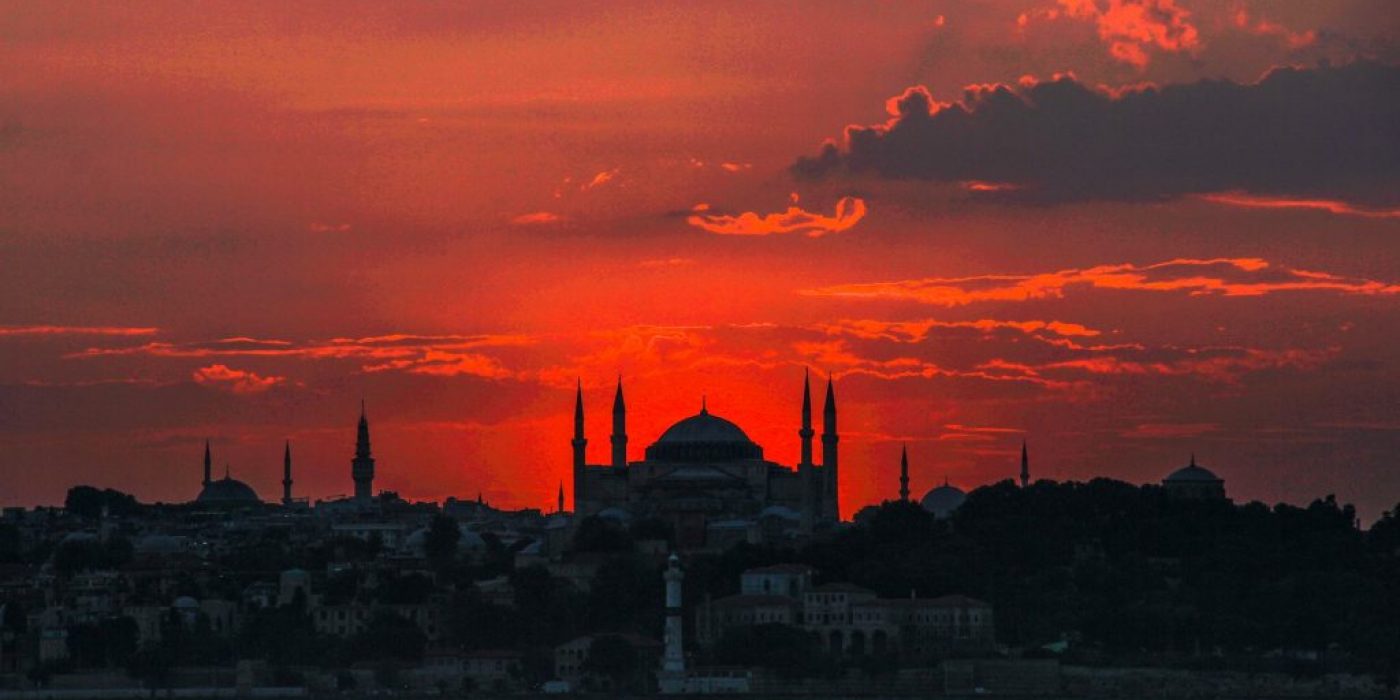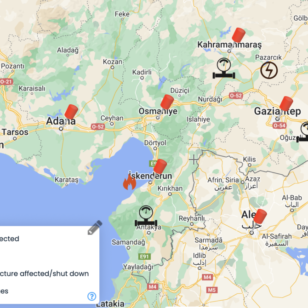Today Turkish President Tayyip Erdogan has declared Istanbul Hagia Sophia into a mosque, after the Council of State, Turkey’s top administrative court annulled a 1934 government decree that had turned it into a museum.
The imposing building of Hagia Sophia – the Divine Wisdom in Greek, was built in the sixth century by the Byzantine emperor Justinian, making of Constantinopole the Second Rome – it has been symbolically the center of Orthodox Christianity, remaining the world’s largest church for centuries. In 1453, when the Ottomans conquered Constantinople, Hagia Sophia was converted into a mosque, its name becoming Ayasofya. It was only in 1934 when the mosque was transformed into a museum after Ataturk’s Republic of Turkey came to life. After the World War II as the UN affiliated UNESCO came to life, Hagia Sophia became a UNESCO World Heritage site, making it into a world’s popular tourist attraction.
Ever since Sultan Mehmed II and his Ottoman army seized Constantinople, the Hagia Sophia has always been a hotly contested religious symbol, reflective of Turkey’s pull between East and West. Erdogan was aware of this cultural war, and for years he has made it a key feature of his political strategy to take a clear stance. Considering the intrinsic symbolism, Erdogan’s anticipated move is notable for several reasons.
First, it supports Turkish neo-ottoman posture that Erdogan has announced publicly in 2019 for his country’s foreign policy. As the country still deals with socio-economic problems and the current pandemic, the current regime has to maintain the public support through symbolic gestures meant to build up national culture and pride. In the same time, such gestures, well calculated ahead of time – discussions about Hagia Sophia becoming mosque again were first reported back in 2016, are meant to show the world that Ankara is serious about its plans.
Most importantly, this is meant to reposition Turkey as an important leader of the Muslim world, with Ayasophia bringing back memories of the Ottoman – Persian contest of influence into Asia, the Middle East and the Mediterranean. This move supports Erdogan’s Islamist AKP agenda and interest to establish itself as the key Muslim power in the Middle East. Erdogan wants to contest Saudi Arabia’s Sunni ideological leadership over the Muslim world; while Turkey doesn’t have Mecca or Medina, Hagia Sophia is one of the most important, historical relics of Ottoman power and Muslim faith. Erdogan has capitalized on this by converting the Hagia Sophia into a mosque, a move that will be popular among conservative, Muslim populations and will boost Turkey’s image as a ‘regional leader’ of sorts.
Second, it marks the end of the European influence over Turkey, marking, in a sense, a historical era for Turkish civilization. This process has started during the 2000s, when the Turkish Europeanized elite of Istanbul was slowly replaced by the “Turkish Tigers” generation coming from the Asian Turkish side. They brought in the financial wealth coming from the economic emergence of the region and also the deep traditional and religious feel of Turkish culture. As Turkey developed, it became more traditional and less attached to European values, slowly renouncing its initial goals of accessing the EU as it saw the EU confronting with its own problems.
Third, the Turkish gesture also unveils the limits, if not the end, of the international system as it was structured after the World War II. While allied countries in NATO like the U.S., France and (obviously) Greece have asked Turkey not to move ahead with its decision to transform the building from a museum into a worship place, it chose not to listen. Russia expressed concern and regrets over Ankara’s move not to respect UNESCO’s status for the building. But both NATO and the UN are institutions of the old world which no longer seem to serve (some of) their member states interests.
Turkey, building its case on Hagia Sophia since more than five years now, chose the best moment to implement its decision. Just days after President Trump announced the U.S. would withdraw from the UN World Health Organization and after President Putin assured his stay into office until 2036. Who, under the circumstances, could lecture Erdogan what to do in Turkey? Home affairs are just that – home affairs. More, while the U.S. is busy with dealing with the pandemic at home, Russia coordinates with Turkey in the Eastern Mediterranean, considering its imperative to maintain its presence and influence in the region.



